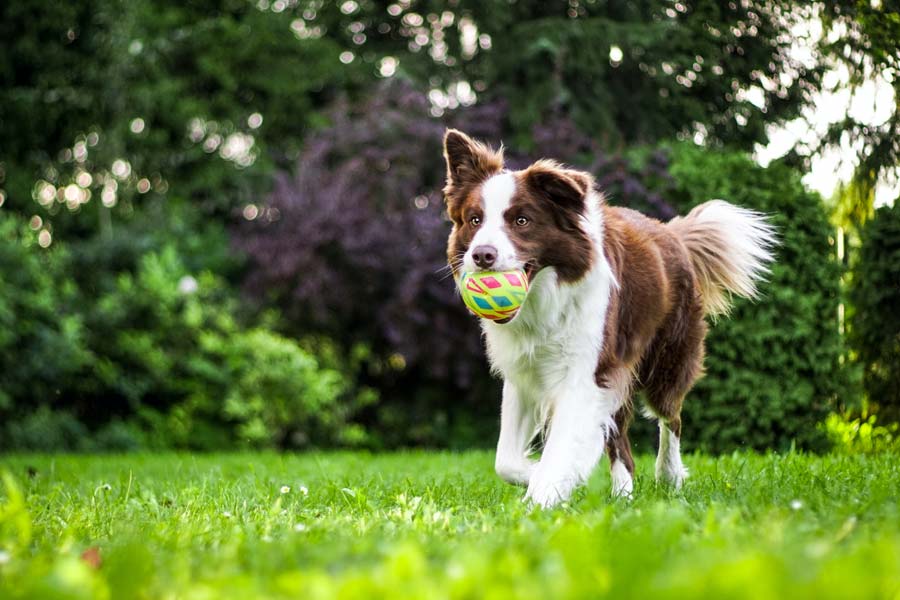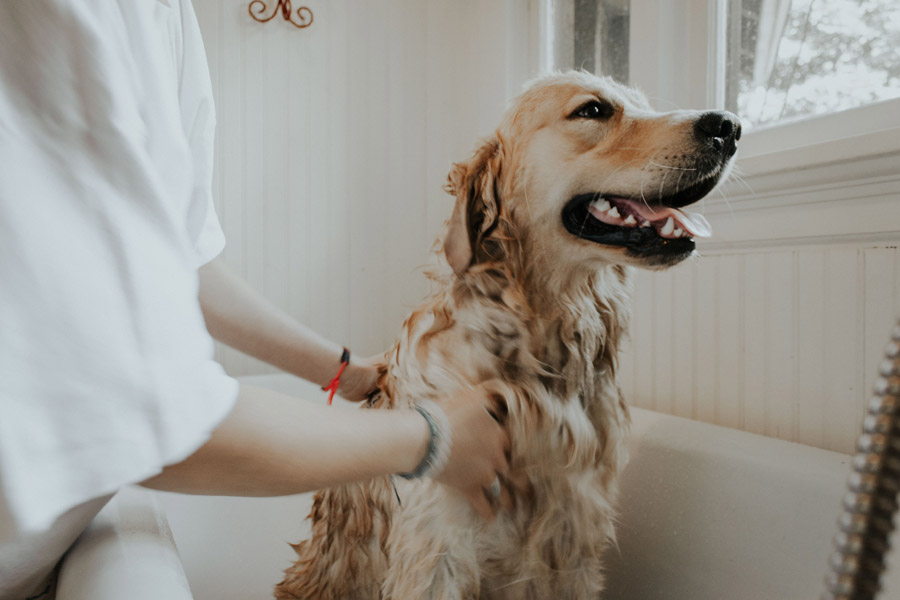As a pet professional, people assume you know A LOT about pets. Be prepared to show off your know-how by getting clued-up on some of the most common pet questions.
Whether you’re a vet or an animal trainer, it pays to know the common questions pet owners ask—as well as the appropriate answers!
Popular questions pet parents ask their vet
Vets are the obvious go-to for a wide range of animal-related ponderings. Common questions they get asked by pet parents include the following.
Is it really necessary to vaccinate my pet?
Pet owners may question whether or not pet vaccines are necessary—or whether they’re just part of a money-making scheme! There are also concerns amongst some people that vaccines can be dangerous.
As a pet professional, it’s important not to judge but to instead empathise with the owner; whether you feel the concerns are based on fact or not.
You can reinforce the message that pet vaccinations save lives and are an important tool in keeping our pets healthy. Furthermore, the benefits of vaccination in protecting against disease far outweigh the potential for an adverse reaction.
The advice from the Australian Veterinary Association is that the decision to vaccinate should be determined by factors such as the individual animal’s health status, the aminal’s age and likely effects of maternally derived antibodies (MDA). In addition, the particular disease and environmental risks to the animal, and the duration of immunity (DOI) of available vaccines also need to be considered.
Pet professionals play a really important role in educating owners on pet vaccines, discussing their concerns and advising on the core recommended vaccines.

What’s the best diet for my pet?
Indeed, a pet’s diet is deeply linked to their health so it’s not surprising that pet parents should worry they’re not feeding their beloved fur pal correctly.
Unfortunately, the answer isn’t a short one; it will depend on the individual animal. However, you can offer some tips to help owners do the best by their pets.
Advise them to check the ingredients list on any food they are feeding their furry friend. Where possible, avoid artificial flavours, additives and preservatives. Suggest they look for specific sources of protein and try to avoid vague names; for example, ‘meat proteins’ and ‘by-products’.
Also, be mindful there are lots of common myths about pet food. Helping to debunk these myths can ensure pets are getting the best diet possible.

Popular questions pet parents ask dog trainers
Pet owners will often pick the brains of a dog trainer to discover the answers to their long-standing pet questions. Here are some of the most popular questions dog trainers get asked by their clients.
How long will it take to train my dog?
The obvious answer is “it depends”. However, no pet owner wants to hear that. They want a semi-solid number they can work towards. In general, it takes a minimum of four months to train a dog. However, it can take upwards of a year if the owner wants peace of mind that nothing will distract their fur pal.
If I train my dog with treats will it get fat?
This is a common and fairly valid concern. After all, we all know the risks associated with pet obesity. Pet owners can be advised that it’s okay to train with treats.
Recommend they break up treats, so they’re only giving their barking buddy a little bit at a time. They can also use some of their dog’s daily food ration. This way the dog is not eating anything extra; he’s just having it spread out over the day.

Popular questions pet parents type into Google search
It’s understandable for pet owners to have many questions about their fur babies. Asking questions about the health and happiness of the pet shows they care. Here are a few of the popular questions they want the answers to.
How often should I wash my pet?
A sweet-smelling pet is wonderful, but it’s common for owners to worry they’re bathing their cat or dog too often. This, of course, begs the question “how often should I wash my pet?”
In general, most pet professionals recommend washing a cat or dog just once a month. However, it also depends on the pet’s lifestyle and habits. If a pet has a habit of sniffing out the muddiest puddles, then he or she might need a bath a little more often.
Just remind pet owners that bathing their pet too frequently can disrupt the balance of their skin. Plus, if the pet hates being bathed it can cause unnecessary anxiety.
Is my pet overweight?
Sadly, almost half of dogs and one third of cats in Australia are obese.* Overweight and obesity can have a detrimental effect on animals’ health, so it’s important to take this question seriously.
The best way to deal with this question is to refer to the owner to a body condition score for pets. Of course, if you have the pet and owner in front of you, you can help them to locate a chart and compare it with their pet.
The World Small Animal Veterinary Association website has body score condition charts for dogs and cats, which can be used by pet professionals and pet owners alike.
If the pet is overweight, you can suggest the owner look into a tailored dietary plan. This should take into consideration the animal’s age and level of physical activity.
Why does my dog eat grass?
The truth is there are lots of reasons why dogs eat grass. It’s also very normal. Most pet parents believe their dogs eat grass because they’re feeling unwell and it induces vomiting. This is true, but other reasons include the following.
Grass can provide nutritional benefits, such as fibre. So it might pay to suggest the pet owner checks their animal’s diet to ensure it’s giving them all the nutrients they need.
Certainly, some dogs simply like the taste and texture of grass. They eat it because they enjoy it! Just advise pet owners to keep their dogs away from grass that may have been recently sprayed with pesticides.
Should I be brushing my pet’s teeth?
Indeed, it might not be the answer pet owners want to hear, but yes — owners should brush their pet’s teeth. According to the Australian Veterinary Association, 4 out of every 5 dogs and most cats over the age of 3 years have some degree of dental disease.
Poor dental health can lead to health and behavioural problems in pets, so it’s important to remind pet owners to take care of their fur pal’s teeth.
Alongside brushing their pets’ teeth with a soft toothbrush, pet owners should provide their pets with a high-quality diet. Additionally, they can offer dogs dental chews to help keep plaque at bay, and ensure their pets gets a regular vet check.
Reference:
* Alexander J. German. The Growing Problem of Obesity in Dogs and Cats. The Journal of Nutrition, Volume 136, Issue 7, 1 July 2006, Pages 1940S–1946S, https://doi.org/10.1093/jn/136.7.1940S
Image source: Unsplash.com
Latest posts by Liz Walden (see all)
- Pet health: Medicinal cannabis for pets - December 27, 2021
- What pet business insurance do I need? - November 17, 2021
- Pet sitters: how to take time off - November 15, 2021










Leave A Comment